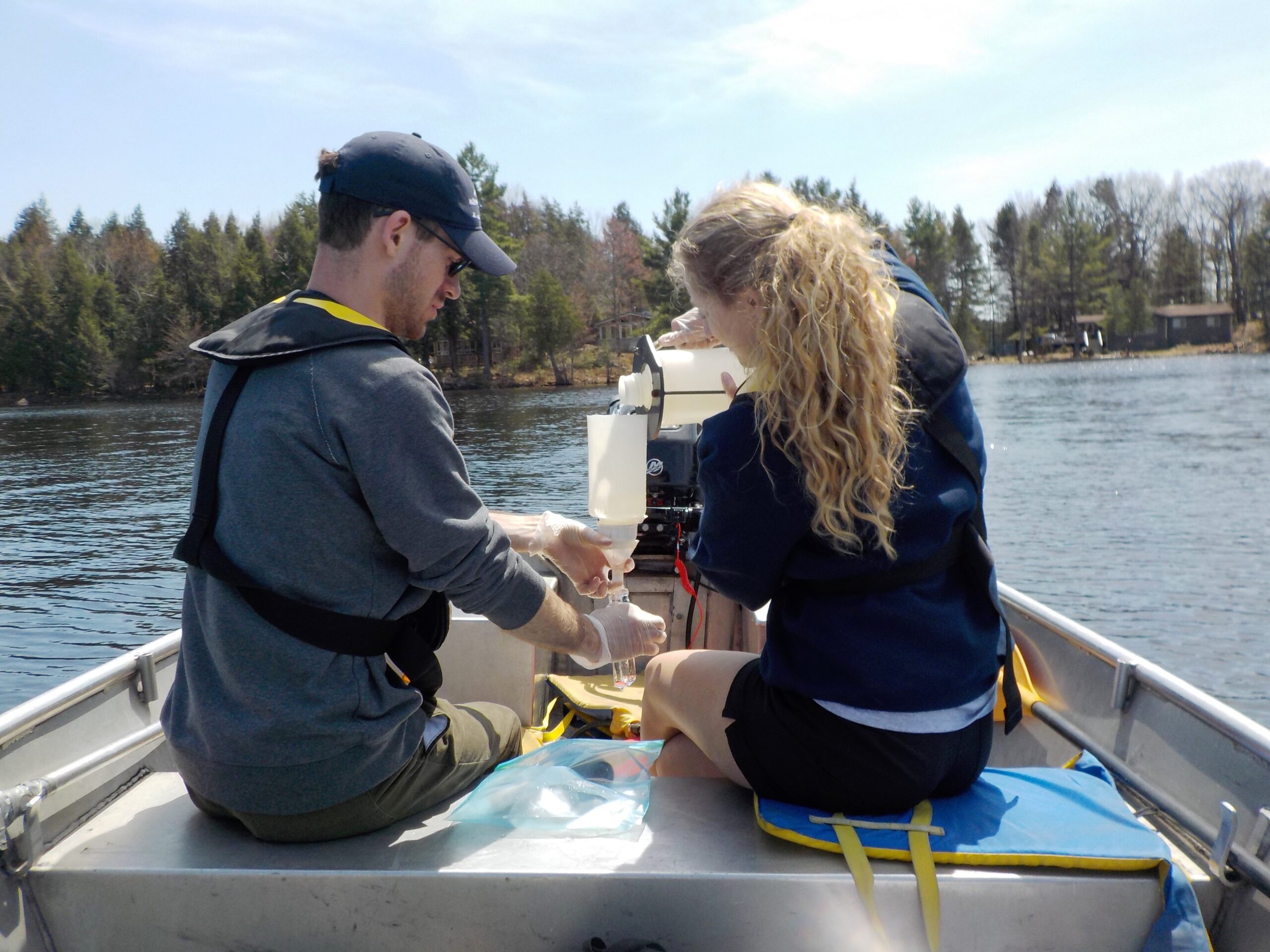COVID-19 must not halt Muskoka’s environmental monitoring programs
By Rebecca Willison.

Environmental monitoring was one of the first things cancelled or suspended as the COVID-19 pandemic descended on Canada. This was understandable, given that resources needed to be reallocated to more immediate concerns related to the pandemic, as well as the reality that much of the environmental monitoring that occurs is typically done in teams and not alone. Indoor laboratories that analyze water and soil samples often offer little opportunity for physical distancing and were closed, and samples collected often have a limited shelf life, depending on the parameter of interest, so without labs operating, there was little reason to collect the samples in the first place. Add to this travel restrictions and the closing of boat launches, and it’s no surprise that monitoring programs carried out by federal, provincial and municipal governments and non-profits were closed down.
However, we must ensure that this is nothing more than a short-term disruption to environmental monitoring programs, and not an opportunity to eliminate them altogether. While programs like these are deemed non-essential during a pandemic, they are most certainly essential in our day-to-day lives. This is particularly true in an area like Muskoka, where much of our economy and way-of-life is based on having a healthy watershed. These services must resume as soon as feasible in order to continue to collect the data needed to make sound environmental decisions.
Muskoka Watershed Council prides itself on its evidence-based environmental programs and positions. We rely on data collected through a number of sources, including provincial and regional programs, academic research, and citizen science. Why is this data important?
As development continues to increase in Muskoka in the coming years, it will be vital that land-use planning at all levels take full account of natural capital if we wish to sustain our environment, our quality of life, and our vibrant tourist and recreational economy. It has long been recognized that Muskoka’s rich natural environment is a major driver of its economy, providing opportunities for healthy outdoor recreation and tourism throughout the year. Strong action is needed to retain the quality of our environment. Without question, as Ontario’s population grows, it is challenging to accommodate increasing development while retaining our ecological health.
With our changing climate, the continuous, long-term collection of environmental data becomes even more critical as ecosystems evolve and respond differently than they did in the past.
Much of the data and research that MWC uses for the Muskoka Watershed Report Card comes from the Dorset Environmental Science Centre (DESC), a Ministry of the Environment, Conservation and Parks facility located in our own backyard. DESC is home to programs like the Lake Partner Program and the Ontario Benthos Biomonitoring Network, citizen science programs that help the public monitor the health of local waterways. DESC also supports the critical water monitoring activities carried out by the District of Muskoka, data from which is used by the public to track water quality issues on their lakes, as well as municipalities to guide land-use policies and development.
MWC’s own citizen science Algae Monitoring Program was impacted by COVID-19, with year two of the pilot project being postponed. While it’s unfortunate to miss a year of data, MWC and the lake association volunteers are committed to continuing the project in 2021. Long-term commitment to environment monitoring programs is necessary to ensure quality data is collected, analyzed and communicated in order to provide an indication of Muskoka’s environmental health and guide remedial measures where necessary. We must strive to ensure that data collection and laboratory services resume as soon as it is safe and feasible to do so. In the meantime, now is an excellent time to take part in environmental monitoring on your own property or waterbody and there are a number of great apps available to help.
